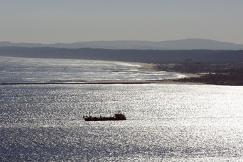Este website utiliza cookies. Ao continuar a navegação está a aceitar a sua utilização.
Caso pretenda saber mais, consulte a nossa política de privacidade.

The circular economy is a strategic concept that aims to promote the economy's material efficiency and productivity, replacing the “end-of-life” concept of the linear economic model with new circular flows of reuse, repairing and renovation.
Moving towards a more circular economy could promote the dissociation between economic development and the extraction of raw materials and the production of waste, reduce the pressure on the limited natural resources, improve the safety of the supply of raw materials, reduce waste and the need for its treatment. Finally, it could reduce the environmental impact of the production, use and consumption of goods and services.
For this to happen, the products must be designed in a new perspective. Its useful life and that of its components must be maximized, through maintenance, reuse, and recycling.
The role of ports in the circular economy is presented in three ways, as hubs of the recycling industries, as consumers and as actors in the management of waste and other materials.
In Portugal, the move towards a Circular Economy is based on the Action Plan for the Circular Economy, approved by the Resolution of the Council of Ministers no. 190-A/2017, which was later amended by the Resolution of the Council of Ministers no. 108/2019.
In this context, APL, S.A. develops a series of activities both in terms of its staff training and in terms of communication with its clients.
On the other hand, with regard to the promotion of water efficiency, APL, S.A. includes clauses in its tendering procedures requiring the implementation of good environmental practices in order to promote water and energy efficiency in places and activities under concession.
Still within this scope, APL, S.A. has been participating since 2007 in the sand nourishment of the beaches on the Atlantic front of Almada, by placing the sands dredged around the entrance to the port, thus contributing to the maintenance of the operational depths of that channel and to the protection of that Atlantic front. The volume of sands placed on the beaches located between Costa da Caparica and São João da Caparica, already reaches 4 500 000m3.

